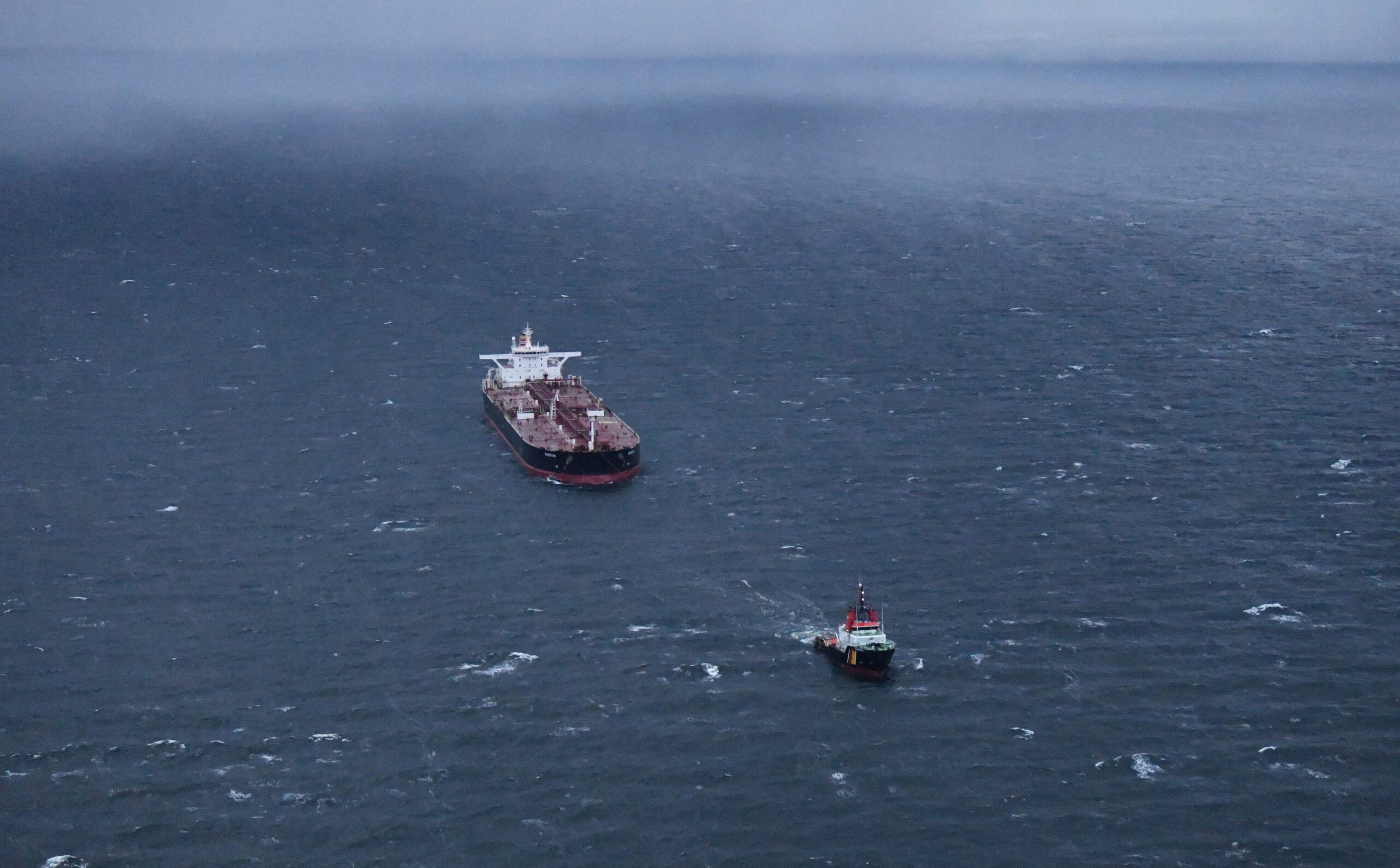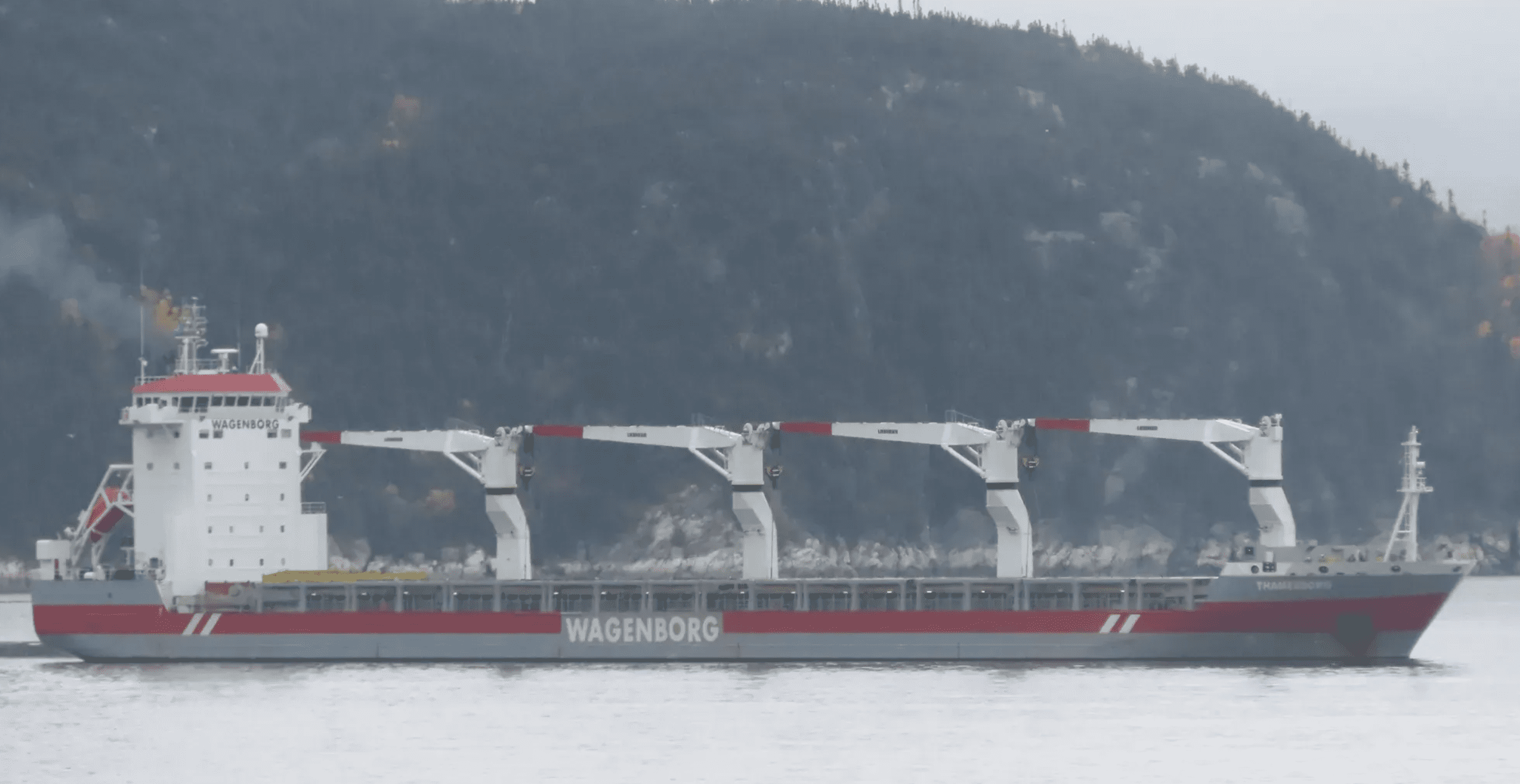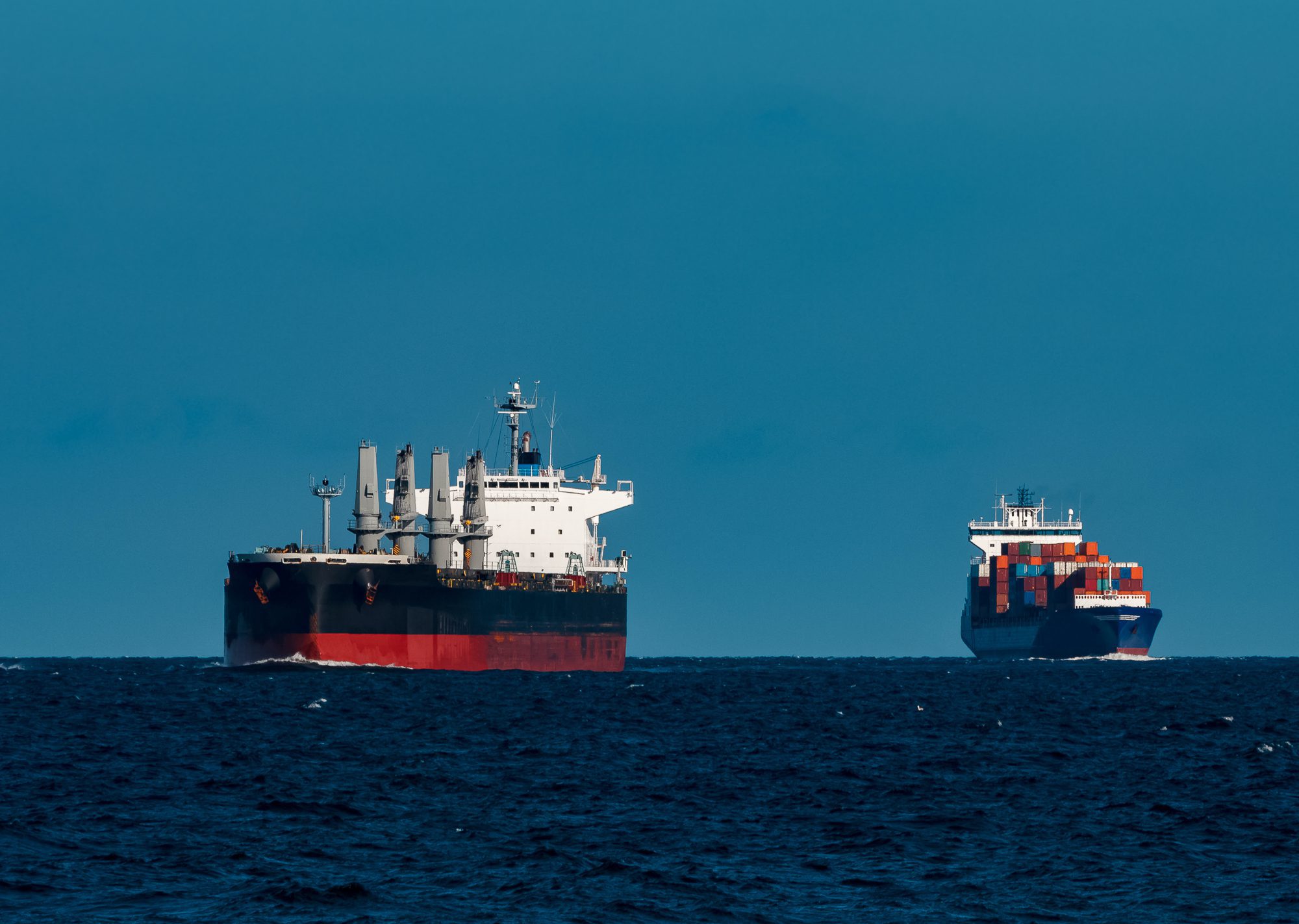By Andrius Sytas
VILNIUS, April 11 (Reuters) – The Estonian navy detained and boarded a Russia-bound oil tanker on an EU sanctions list on Friday, accusing it of sailing illegally without a valid country flag.
The vessel, the Kiwala, has been under EU sanctions since February as part of Russia’s so-called “shadow fleet,” a term Western countries use for ships they say Moscow deploys to circumvent international sanctions. The ships are typically not regulated or insured by conventional Western providers.
The Kiwala was on its way to Russia at the time of the seizure, MarineTraffic data showed. It was flying a Djibouti flag, but an Estonian Transport Authority official said Djibouti had denied that it was registered there.
Reuters was not immediately able to reach Djibouti authorities for comment. Russia’s foreign ministry did not immediately respond to a request for comment.
“Early this morning, the Estonian navy detained a sanctioned vessel with no flag state,” Estonian Prime Minister Kristen Michal said in a post on social media X.
“Estonia takes suspicious activities in the Baltic Sea very seriously,” he added.
In placing the ship on its sanctions registry in February, the EU said it was involved in transporting Russian oil “while practicing irregular and high-riskshipping practices.”
“Because of the suspicions that the vessel has no flag, the Estonian authorities reacted. The crew and the master were cooperative,” said Kristjan Truu, director of Maritime Division at the Estonian transport authority.
Navy ships and helicopters were involved in the operation, and the vessel was being inspected while Estonia talks to Djibouti to confirm details, said Truu.
Michal had warned in December that shadow fleet tankers could be boarded if they did not provide proof of insurance.
There were no reports of any damage to subsea cables or other equipment. Regional countries have accused Moscow of using ships to damage undersea infrastructure in the Baltic Sea in recent years.
(Reporting by Andrius Sytas, editing by Stine Jacobsen and Terje Solsvik)
(c) Copyright Thomson Reuters 2025.

 Join The Club
Join The Club












